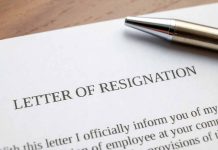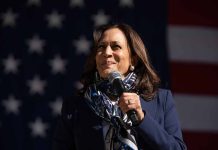
The NAACP is urging the University of South Carolina to cancel a controversial “roast” event targeting Vice President Kamala Harris, citing concerns over hate speech and potential violence.
At a Glance
- NAACP and students call for cancellation of VP Harris “roast” at University of South Carolina.
- Event organizers include Gavin McInnes, founder of the Proud Boys, and controversial figure Milo Yiannopoulos.
- NAACP cites concerns over hate speech, racism, and potential for campus violence.
- University defends event on First Amendment grounds, sparking debate over free speech limits.
- Over 22,000 signatures gathered on petition opposing the event.
NAACP Takes Stand Against Controversial Event
The National Association for the Advancement of Colored People (NAACP) has taken a firm stance against a planned “roast” of Vice President Kamala Harris at the University of South Carolina. The civil rights organization, along with concerned students, is calling for the cancellation of the event, citing its potential to spread hate speech and incite violence on campus.
The President of the NAACP has called on the University of South Carolina to cancel an upcoming "roast" of Vice President Kamala Harris.https://t.co/xSsx2OmSau
— WACH FOX (@wachfox) August 29, 2024
The event, titled “The Roast of 2024 Presidential Nominee and Vice President Kamala Harris,” has drawn significant criticism for its choice of speakers and promotional material. Gavin McInnes, founder of the Proud Boys – a group designated as a terrorist organization in Canada – and controversial commentator Milo Yiannopoulos are set to headline the event, raising concerns about the potential for extremist rhetoric.
NAACP’s Appeal to University Leadership
In a letter addressed to University President Michael Amiridis, the NAACP outlined its objections to the event. The organization emphasized its support for free speech while condemning the event’s promotional materials and the speakers’ controversial backgrounds.
“While the NAACP is a staunch advocate for, and defender of, free speech, in light of the advertisement used for the proposed event, the NAACP urges USC to cancel the proposed event, not because of what might be said at the event, but because of what already has been said and depicted in the obscene advertisement,” the NAACP’s letter reads.
NAACP President Derrick Johnson further emphasized the potential dangers of allowing the event to proceed. “Hate speech has long served as a weapon to undermine the progress of our nation. At a time where we are witnessing groundbreaking history, bad actors aim to cast a dark shadow on those very achievements,” Johnson stated in a separate statement.
University’s Response and Free Speech Debate
The University of South Carolina, citing its commitment to the First Amendment and the Chicago Principles on free expression, has stated that the event will proceed as planned. This decision has sparked a heated debate about the limits of free speech on college campuses and the responsibility of institutions to protect students from potentially harmful rhetoric.
Critics, including Democratic Representative Ivory Thigpen, have accused university officials of hiding behind First Amendment protections rather than addressing the concerns of students and community members. The controversy has even led to calls for more drastic action, with State Representative Leon Howard urging a boycott of USC football games until the issue is resolved.
Student and Community Response
The backlash against the event has been significant, with an online petition started by USC alumna Courtney McClain gathering over 22,000 signatures. The petition cites the university’s Carolinian Creed, which opposes bigotry, as a reason for canceling or relocating the event.
“Put simply, inviting to USC the founder of a terrorist group, which has a history of violence, and a speaker, whose presence results in violence and property damage, would present a clear and immediate danger to the student body, campus personnel, and visitors,” the NAACP’s letter concludes.
As the debate continues, the University of South Carolina finds itself at the center of a national conversation about the balance between free speech and creating a safe, inclusive environment for all students. The outcome of this controversy may have far-reaching implications for how universities across the country handle similar events in the future.
Sources:
- NAACP calls for University of South Carolina to cancel ‘roast’ of Harris
- NAACP, Students to Univ. S.C.: Cancel Roast of Harris
- NAACP condemns Kamala Harris ‘roast’ at USC
- Opposition mounts against Kamala Harris ‘roast’ event with Proud Boys founder at USC campus
- Opposition grows against ‘comedy roast’ of Vice President Kamala Harris on USC’s campus






















